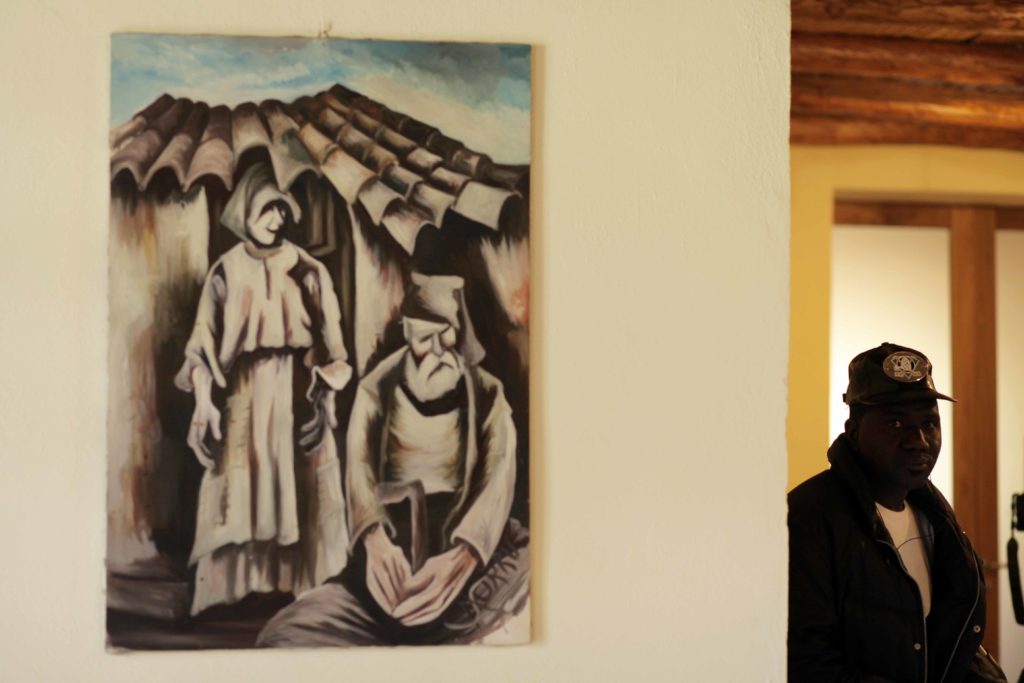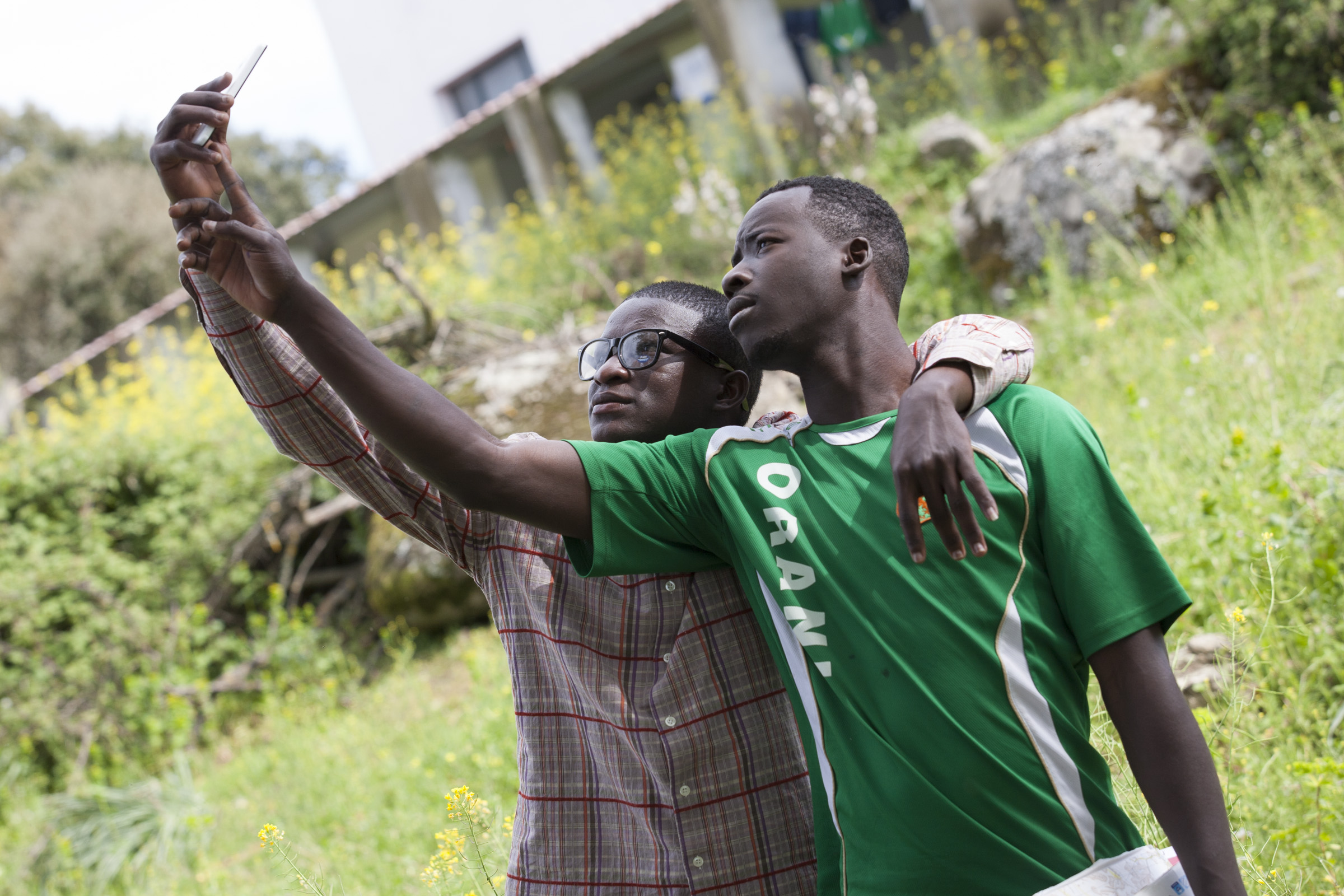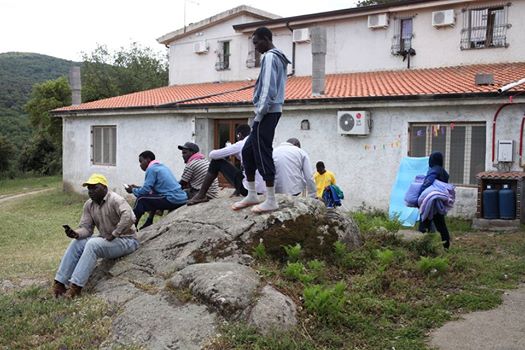BEYOND BARRIERS
BEYOND BARRIERS
by Gabriel Tzeggai

Ours is an era of unprecedented forced migration. Each day 34,000 persons are forced to leave their homes because of conflicts or other types of violence.
In less than 20 years forced migration has more than doubled. During these two decades we have observed the European continent debating quite a lot about the “migratory crisis” while it has increasingly transformed itself into a real and proper “fortress” and adopted policies that aim at making its borders impenetrable.
In order to stem the flow of migrants, Europe has established various maritime operations (Hermes, Aeneas and Triton) with the primary objective of protecting the borders in the Mediterranean. The only operation that had as objective saving the lives of migrants, Mare Nostrum, was short-lived and lasted just one year. Other types of barriers have been created by restoring strict controls at national borders or by means of hundreds of kilometers of ignominious barbed wire stretched along the European landscape.
During the last two years, while thousands of refugees were suffering from hunger, cold and terrible humiliation along the militarized borders of the “Balkan route”and thousands of people were dying in the Sicilian Channel and the Aegean Sea, the political debate of the European countries showed a real obsession for the numbers of asylum applications.
There has been a lot of talk about “migrants quota” to be “distributed” among various European countries; “road maps” and “immigration agenda” have been proposed. European leaders have talked about “hotspots” and they quarreled about the relocation of 40,000 asylum seekers. Forty-thousand!
In between summits they have even haggled about these numbers, once getting to an agreement and reducing the number of “acceptable” asylum demands, from forty-thousand to thirty-thousand, and then rising it to 120,000.
The fact that migrants have been treated as goods to be exchanged is confirmed by the funding and the agreements undertaken with Turkey and other African states so as to involve them in the control of migratory flows. Europe is even willing to pay and sign agreements with some states that are well known for human rights violations and crimes against humanity. By associating itself with dictatorial regimes, Europe is becoming an accomplice in the violation of human rights. It’s clear that Europe is willing to go to any length to stem migration. At this point we need to ask the question: is Europe really in the midst of a difficult migratory crisis?
Let’s take a look at some figures. According to the latest UNHCR report, Europe is hosting only 6% out of a total of 65,3 millions of forced migrants, while Sub-Saharan Africa is hosting 29%, the Middle East and North Africa 39%, Asia and the Pacific 14% and the American continent 12%
So, if these are the numbers, why is Europe so alarmed and unwilling in accepting refugees?
Perhaps we can find an answer by posing another question. What is forcing such a multitude of people to flee and leave their own land? At this point the causes are clear. There are migrants who flee from wars and other types of violence. The West has incited some of these wars, while being an accomplice in other conflicts.
Then there are the so called “economic” migrants, who actually are victims of neo-colonial exploitation and are forced to flee their land because of extreme poverty and hunger. There are also environmental refugees, victims of both land grabbing and of the worst disaster caused by humans: environmental chaos. In this case too the weight of responsibility rests mainly on the most wealthy and industrialized countries. Europe is at the centre of all this, both with past historical and contemporary responsibilities.
Climate, the environment, wars and poverty often are interconnected causes of forced migration. Yet, the right to asylum is not granted to “economic” migrants and only in some cases they are granted humanitarian protection, while environmental migrants are denied any form of recognition.
The impact of climate change on the reduction of habitable land cannot be underestimated. In addition, there is the evident correlation of land grabbing and forced migration. Because the action of grabbing land involves grabbing water and other resources as well.
When millions of hectares of land are sold or given in concession to multinational corporations or to other foreign states, the consequence is that millions of people are forced to flee. The people who are driven from their lands do not derive any benefit from the extraction of fuels or minerals, or even from the bio-fuels.
In case that their land will be used by agro- industrial companies, crops will not be sold in the local markets but will be exported. As a consequence of such extractive capitalism, these people will be forced to seek refuge somewhere else. Therefore it becomes evident that the distinction between a political asylum seeker and an economic asylum seeker is nonsense.
It is important to note that the great majority of forced migrants, i.e. 86% in 2015, remains in the southern part of the world and that the percentage that reaches Europe is minimal.
The truth is that the underlying cause of contemporary forced migration is the predatory system from which Europe has always benefited. By trying to stem migratory flows, the European capitalist system is aiming at perpetuating its own privileges. To perpetuate such privileges means to live in prosperity, plundering the planet’s resources while 795 million people continue to suffer in an intergenerational cycle of hunger.
It is clear that we have reached a turning point that requires not only answers but also clear and radical actions. To avoid falling into the abyss, the only alternative is to create an environmental conversion and a just and balanced social and economic system. In other words, this means changing lifestyle and giving up the privileges so far enjoyed by the rich part of the world.
It’s not easy but neither impossible to accomplish. However, it will not be a political class that has evolved in a post-colonial context that will be able to do it. This needs a paradigm change. The encounter of cultures that ensues from migration will bring about this change.


